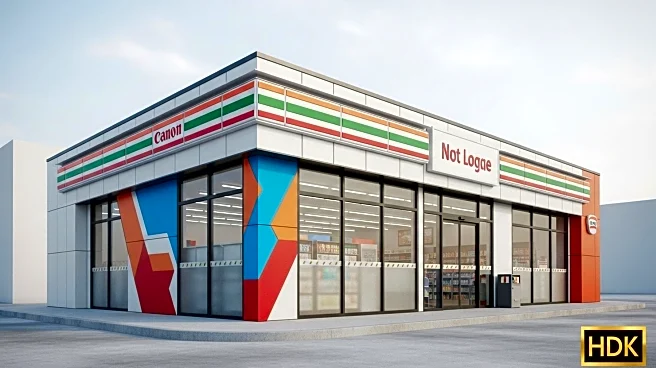What is the story about?
What's Happening?
OXXO, a convenience store chain owned by Monterrey, Mexico-based FEMSA, is expanding its presence in the United States by rebranding 50 DK convenience stores and planning for 35 more next year. This move follows OXXO's acquisition of 249 stores from Delek US Holdings in October 2024. The company aims to compete with established U.S. brands like 7-Eleven by focusing on employee value propositions and neighborhood-specific product strategies. OXXO's approach includes offering employee discounts and tailoring store offerings to local customer preferences.
Why It's Important?
OXXO's expansion into the U.S. market represents a significant shift in the competitive landscape of convenience stores. By focusing on employee satisfaction and localized product offerings, OXXO aims to differentiate itself from other major players like 7-Eleven. This strategy could lead to increased customer loyalty and market share, impacting the convenience store industry and consumer choices. The expansion also highlights the growing trend of international brands entering the U.S. market, potentially influencing industry standards and practices.
What's Next?
OXXO plans to continue its growth in the U.S. through new builds, acquisitions, and mid-sized company purchases. The company is focused on becoming a relevant player in the U.S. convenience store channel, which will involve expanding beyond its current 249 stores in West Texas. As OXXO solidifies its brand and consumer value proposition, it may explore further opportunities for expansion across the U.S., potentially leading to increased competition and innovation in the industry.
Beyond the Headlines
OXXO's entry into the U.S. market raises questions about the differences between convenience store operations in Mexico and the U.S. The company's approach to fuel sales and store locations reflects these differences, which may influence its strategy and success in the U.S. market. Additionally, OXXO's focus on employee value propositions highlights the importance of workforce satisfaction in driving business success, which could have broader implications for labor practices in the retail industry.
















